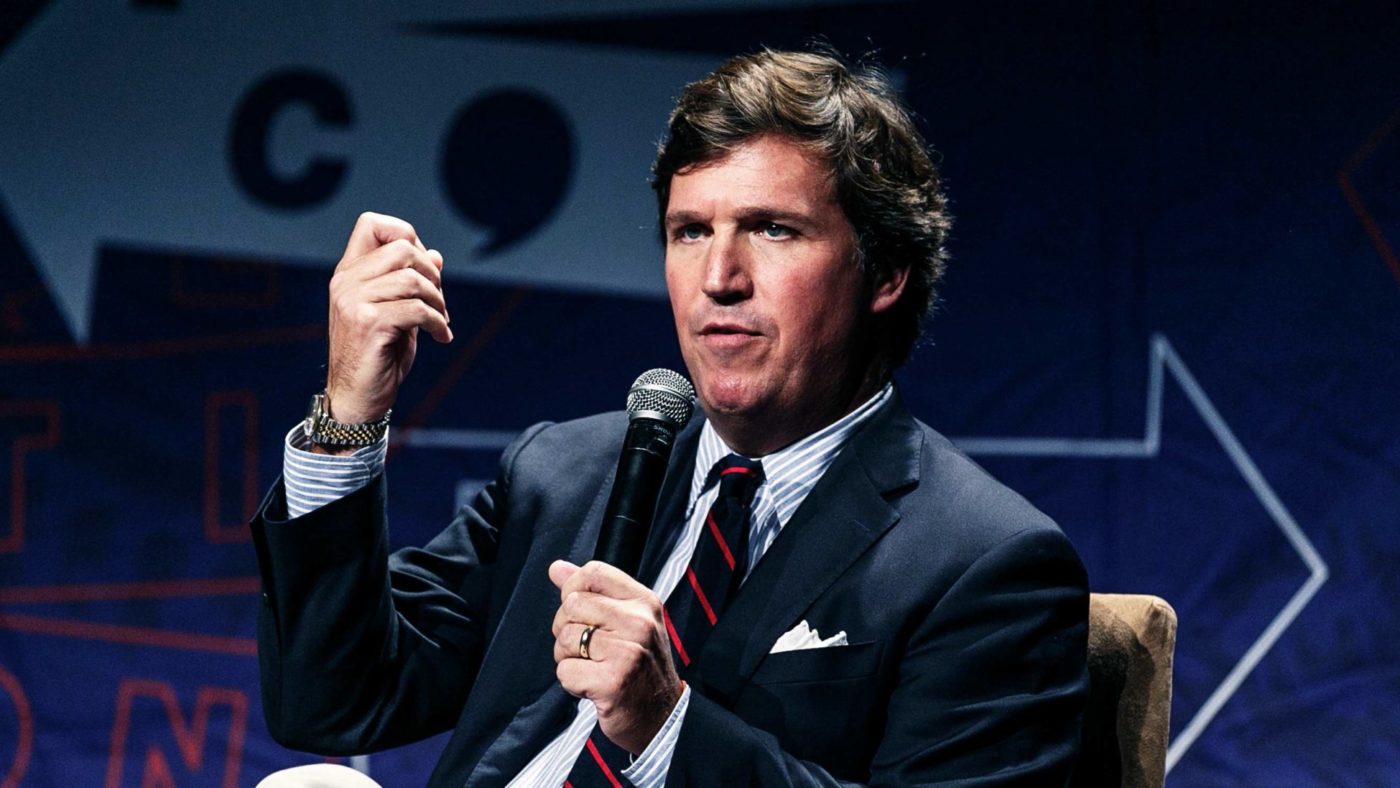Can you guess who said the following? “Republicans have considered it their duty to make the world safe for banking, while simultaneously prosecuting ever more foreign wars.”
If you thought of Senator Bernie Sanders or Representative Alexandria Ocasio-Cortez, you are wrong. This searing indictment of the GOP came recently from the influential Fox News presenter and commentator Tucker Carlson. Last week, the alumnus of The Weekly Standard and the Cato Institute delivered to his viewers a monologue essentially rejecting the entire legacy of Ronald Reagan-style conservatism.
It is not unthinkable that Carlson is entertaining the prospect of being a Trumpist candidate in the post-Donald Trump era. But regardless of motives, the “manifesto” is evidence of a battle of ideas unfolding within the Republican Party far more consequential than the President’s antics or the current government shutdown.
What are the odds that the party will return to the status quo ante of advocacy for a small government, lower taxes and a muscular US foreign policy? Or, will it embrace some or perhaps all of Trump’s intuitions as parts of its future ideological core? If so, which ones?
Other than a somewhat predictable rejection of interventionist foreign policy (“More policing in the Middle East is always better. We know that. Virtually everyone in Washington agrees”), Carlson’s manifesto is thin on specific proposals. Yet what sets it apart is its openly anti-market ethos. “Not all commerce is good,” Carlson says, and “market capitalism is not a religion” but “a tool, like a staple gun or a toaster.” For example, “why is it defensible to loan people money they can’t possibly repay? Or charge them interest that impoverishes them?”
He hints at the need for genuine tax reform – but not the kind that Grover Norquist and GOP supply-siders have in mind. “We tax capital at half of what we tax labour. It’s a sweet deal if you work in finance, as many of our rich people do.” Unsurprisingly, he cares little for free trade, whose benefits can be boiled down to “cheaper iPhones, or more Amazon deliveries of plastic garbage from China”.
The manifesto makes no mention of immigration. Carlson has never hidden his restrictionist views but the topic has likely become overplayed in recent weeks, with President Trump’s doubling down on his promise of a wall on the border with Mexico – an idea that has very little appeal outside of his narrow political base.
In contrast, the manifesto dedicates a lot of attention to the interplay of culture and the economy. The main problem? The combination of open, competitive markets and progressive social norms, which extended new economic opportunities to women: “When men make less than women, women generally don’t want to marry them. Maybe they should want to marry them, but they don’t. Over big populations, this causes a drop in marriage, a spike in out-of-wedlock births, and all the familiar disasters that inevitably follow – more drug and alcohol abuse, higher incarceration rates, fewer families formed in the next generation.”
Even though they speak to real social problems, it is hard to take such sweeping, retrograde generalisations seriously. And given his own background, Carlson’s self-identification as the tribune of working-class Americans seems pretty disingenuous. Yet, the explicit rejection of the GOP’s ideological commitment to laissez-faire economics could well be clever politics considering the party’s white, male, rural, and working class base. The donors and the party-friendly intellectuals might not like it, but if I had to make a bet, I would put my money on the GOP’s going in the general direction in which Carlson is pointing.
Similarly to progressive reformers of the 1930s, the TV presenter sees himself as a saviour of the market system from the threat of socialism, not an enemy of the system. “Socialism is exactly what we’re going to get, and very soon unless a group of responsible people in our political system reforms the American economy in a way that protects normal people.” And he does have a point – the small-government fundamentalism one finds in many corners of the American right tends to be distinctly intellectually incurious and impervious to evidence.
Of course, Carlson, similarly to Trump before him, does not offer an intelligent policy agenda to address the grievances that he identifies. But perhaps his manifesto is the beginning of a long road towards a US version of one-nation conservatism, organised around the questions of social and economic mobility, poverty, work, and access to opportunity – some of them explored in the work of people such as Henry Olsen, Oren Cass, and Reihan Salam.
The question is whether one-nationism can tame a party that has gone astray and become repellent, for good reasons, to large numbers of Americans outside of its narrow base. The anger at a market system that is rigged can lead to different policy prescriptions, some of them better than others. But, more importantly, the question is whether the GOP can successfully shed, or at least de-emphasize, the bigotry, racism, and know-nothingness that Trump, Carlson, and their ilk have successfully planted in its midst. And that remains a massive if.


